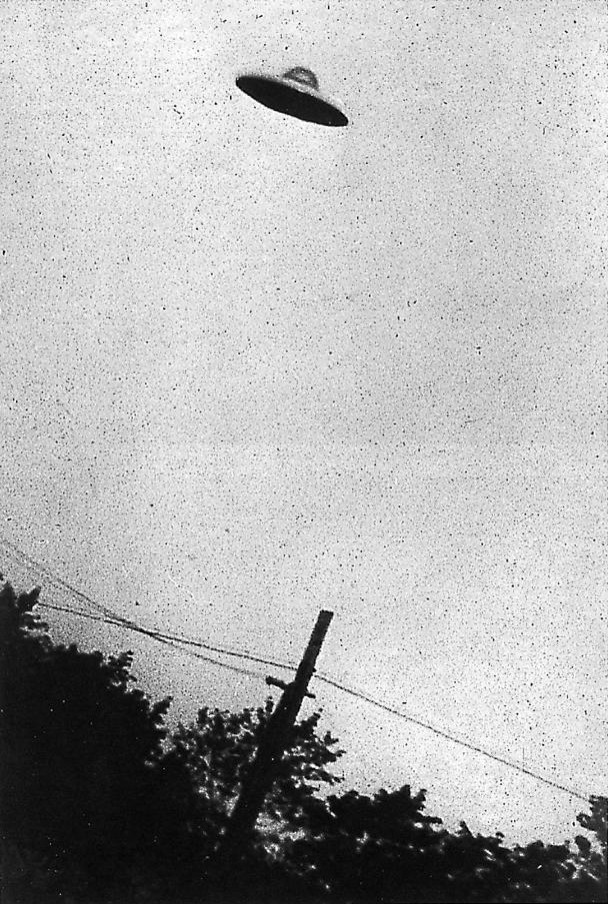World UFO Day 2015: Why do people believe in unidentified flying objects, aliens and abductions?

Belief in UFOs is a global phenomenon, with millions of people subscribed to ideas of unidentified flying objects, aliens, abductions and government conspiracies about the likes of Roswell and Area 51.
A survey from the National Geographic Society in 2012 showed 36% of Americans (around 80 million people) believe UFOs exist. A further 47% said they were undecided, while just 17% gave a firm no.
While the survey used UFO in the strictest sense, ie not aliens visiting our planet but flying objects we cannot scientifically account for, the ardent beliefs some people hold is indicative of a wider phenomenon psychologically.
There are around 4,000 members of the Mutual UFO Network and according to URL metrics, the site UFO Sightings Daily gets over a quarter of a million monthly page views – with an estimated value of $27,453 (£17,450).
And this belief has led to the creation of World UFO Day on 2 July, an event set up in 2001 to commemorate the supposed UFO crash in Roswell in 1947.
Susan Krauss Whitbourne, professor of Psychological and Brain Sciences at the University of Massachusetts Amherst, says evidence suggests certain personality traits make people far more likely to believe in UFOs and all that goes along with it.
She told IBTimes UK the data suggests people who are open to new ideas are more likely to believe in UFOs. Krauss Whitbourne said: "You get the sense that there's kind of a dimension of suggestibility, so if you're high on that spectrum ... [you may be more] willing to entertain new ideas and fantasies. You start to get into the domain where people believe things that seem highly improbable."
One study that looked into the belief in alien abductions used a false memory test to show a correlation between susceptibility to lures and belief in abductions. In another test called the Australian Sheep-Goat Test, researchers assessed belief in paranormal activities – those who were termed "sheep" believed, while those who did not were termed "goats".

"I was impressed by the personality study because that really puts it into a context psychological phenomenon we can understand that people vary in this openness to experiences," she said. "I think people like to think about all possibilities and therefore are open to these ideas, but are maybe also more vulnerable."
Krauss Whitbourne said people like to look for a larger meaning or purpose and it is this sort of "playfulness" involved in more susceptible personality types that can then become more extreme.
While largely there is no detrimental effect, when the belief becomes something more, problems can arise. She said: "As something you want to entertain as a fun thing to think, there's no really harm in it. If you go really far along the continuum, you reach delusion beliefs those are problematic.
The ever-increasing popularity of social networks and websites dedicated to UFOs has also fanned the flames to some extent – an outlet that has allowed people from across the globe to connect and become a community. "People have more of an outlet now. You can find people to listen to you but you can also get information that feeds those beliefs you already have," she said.
Once this belief system is in place, Krauss Whitbourne added, it can be difficult to see things with an unbiased view point. She said: "I think people who are going to be sceptical will always be sceptical and vice versa. Once you have a belief system, you fit the facts into that belief system, so I doubt if anyone is looking at it rationally.

"This continuum idea is really important. It's like a gateway drug – people might say 'I've had a psychic experience' and continue on from there. Once you start going down that path you're going to find a lot of confirmatory evidence if that's what you're looking for."
And it is this where evidence becomes skewed. Pointing to a recent example where conspiracy theorists pointed to pyramids on Mars being evidence of an ancient civilisation, Krauss Whitbourne said people will use these small scraps to reinforce their beliefs.
She said: "It's the uncritical nature of the judgments people make or the conclusions people reach. Because if you want to believe something and go down that pathway and not be critical. And it is important to maintain a healthy scepticism.
"In true scientific scepticism, that would be that you let the data drive the conclusions. If you go in wanting to believe something, it's going to be pretty hard for you to take that hypothesis-testing approach."
© Copyright IBTimes 2024. All rights reserved.







